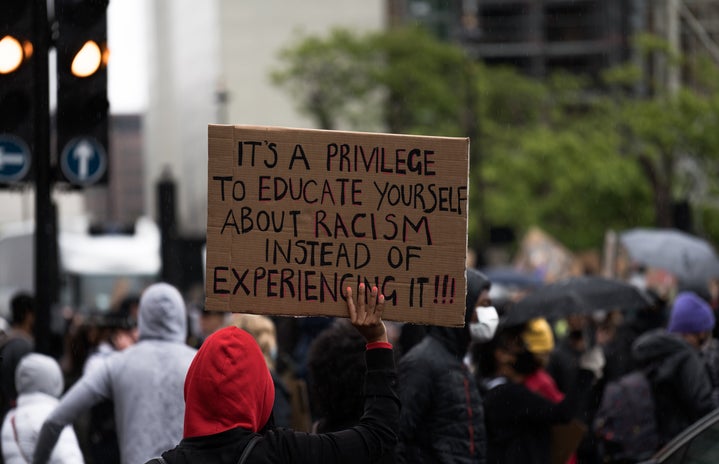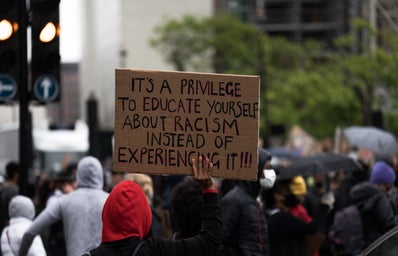Warning: sensitive content that deals with topics of racism, violence and murder.
INTRODUCTION:
On the 22nd of April 1993, eighteen-year-old Stephen Lawrence was tragically stabbed to death in an unprovoked racist attack while waiting for a bus in Eltham, London. Coming up to the 30th anniversary of his death, we ask the question: how much has really changed?
THE LIFE OF STEPHEN LAWRENCE:
Throughout his entire childhood, Stephen dreamed of being an architect. His mother has always described him as a playful child who loved football, athletics and his family, and never did anyone harm. At the time of his death, he was studying technology and physics along with English language and literature at school, working hard to achieve the dreams he was so set on.
Stephen did not know his killers and his killers did not know him. After his death, between 7th May and 3rd June, all five suspects in the murder were arrested, however, the case was dropped after insufficient evidence was found by the force, although several witnesses had come forward providing names of suspects and even an anonymous note related to the case. A year later, in September 1994, Stephen’s parents Neville and Doreen made the decision to pursue a private prosecution against the suspects, with this resulting in the five suspects, upon appearing at inquest, refusing to answer any questions in February 1997. The daily mail soon after labelled the five men “murderers” on the front page, even stating “Murderers: The Mail accuses these men of killing. If we are wrong, let them sue us” – opening up the British Public to the case and its developments.
HIS IMPACT:
The impact Lawrence’s death has had on the UK legislature is unmeasurable. Produced in late 1997, The Macpherson Inquiry is now known as one of the most significant pieces of anti-racist legislation ever produced by the United Kingdom government. Home Secretary Jack Straw, in February 1999, released a 350-page report discussing the issue of institutional racism and failure of leadership within the ranks of our government designed to protect us and provided recommendations aimed at improving these downfalls.
The Macpherson inquiry was radical in shaping anti-racist policy across the UK, with Home Secretary Jack Straw quoted as saying: “The pervasive, open racism of the fifties and sixties, the pernicious, sniggering racism of the seventies, eighties and nineties is gone. For that we have to thank Doreen and Neville Lawrence, above all others,” – Lawrence’s case changed British legislature for the better. The inquiry, which made focus on the fact that stop and search was a “universal” area of complaint, remains especially relevant today, as in March 2021 people from a Black or Black British background were still 7x more likely to be stopped than those from a White background – we must remember what the goal is and continue to do everything we can to pursue and achieve it.
Changes to the law made from the Stephen Lawrence case include the creation of specific offences for non-fatal racially aggravated offences and higher sentences for those killings decided as being racially motivated. Furthermore, his death led to the abolishment of double jeopardy rulings which previously meant that someone could not be tried twice for the same crime – which eventually allowed Dobson and Norris to be re-trialled and convicted of Stephen’s murder.
The Stephen Lawrence Research Centre (LSRC), at De Montfort University, was officially opened in 2019 by Stephen’s mother Doreen, with the aim of being the heart of international conversations regarding race and social justice and of spreading Stephen’s story and fight for justice globally. The centre helps promote justice in new generations of young people, educating thousands of children on Stephen’s story while researching the lives of Black and Asian individuals and their experiences and providing grants and bursaries for students who otherwise may not be able to access higher education.
TODAY:
Stephen’s case has highlighted the deep-rooted issue of institutional racism and inequality embedded within British society and has helped us move towards a fairer society for all, but there still remains work to be done.
On the 22nd of April 2023, we will celebrate Stephen Lawrence day with additional love and compassion, and remember how he paved the way for the progress we have made today. Baroness Lawrence continues to reflect on the progress we have made but reminds us to continue to look forward and never forget that there is now more work than ever to be done if we continue to strive for a fairer and more equitable society for all.
RESOURCES:
https://www.stophateuk.org/about-hate-crime/helpintheuk/ – for links to information on Hate Crimes, and what you can do.
https://stephenlawrenceday.org/stephens-story/ – for more information on Stephen and his impact.
https://publications.parliament.uk/pa/cm5802/cmselect/cmhaff/139/13909.htm – information on the MacPherson inquiry.


